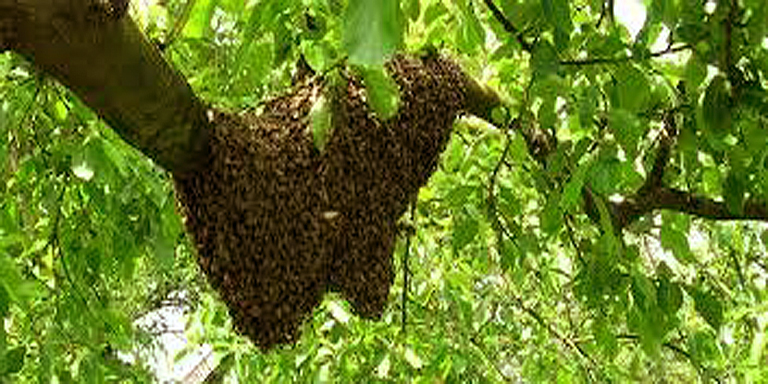Kendrapara: Illegal honey business in Bhitarkanika National Park has resulted in forest fire and destruction of hundreds of acres of forest land, casurina and mangrove forests in last four years, a report said.
Forest fires have been reported from 11 places in Bhitarkanika over last four years. The matter came to the fore after extinguished fire brands, sacks and match boxes were recovered by officials while they were carrying out investigation.
Destruction of four acre of forest land in Barunei jungle in April 2018 is a case in point. Even as this area is a completely deserted land, match boxes, fire brands and sacks were lying in the forest.
Locals alleged that two forest fires that occurred in parts of the forests under Mahakalapara block are due to illegal honey harvesting.
Moreover, use of fire brands in honey harvesting has led to a decline in honeybee population which if not checked might spell danger for the eco-system.
Reports said people engaged in illegal honey business regularly visit jungles in Bhitarkanika and harvest honey by showing fire brands near beehives. The collection takes place between April and May when hundreds of honey traders flock the forest for honey harvesting.
Environmentalists Hemant Kumar Rout, Ashok Kumar Swain, Prabhu Prasad Mohapatra and Sk Chand claimed that the leftover fire brands are used by these traders in honey harvesting.
The Bhitarkanika National Park is spread over 672 sqkm and is known worldwide for its rich bio-diversity. Out of this, 145 sqkm is covered by dense forest which is a prohibited zone for common people.
This dense forest is filled with natural bounties. The area is famous for wild honey and boasts of a record 480 quintals of honey in a single year. The craze for honey harvesting among traders is the reason behind destruction of large tracts of forest in Bhitarkanika.
These traders engage local people who without abiding by norms enter the forest to collect honey. They use fire brands to drive away bees. The smoke and the razing fire frighten the bees driving them to fly away.
Later, they pull down the hives and collect the honey. They leave the fire brands and other inflammables in the forest which later destroys the forest land. This has been going on for several years without the knowledge of the forest department.
Locals claimed that the forest department should train interested residents in honey harvesting and protection of honey bees. This will help people get wild honey of Bhitarkanika at a reasonable price while the forest department will receive revenue.
Over 5000 residents can become self-reliant through honey harvesting, they claimed.
When contacted, DFO Bikash Ranjan Dash said no one has been given permission for honey harvesting in the prohibitory zone. He, however, said he would examine the proposal to train people in honey collection.
PNN

